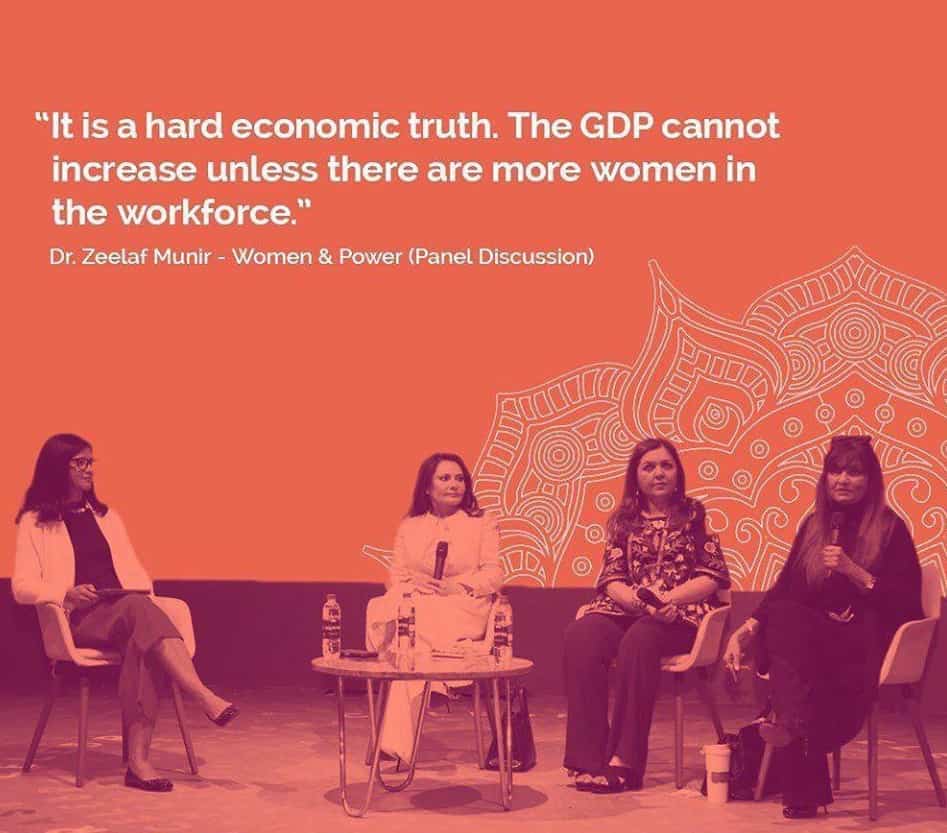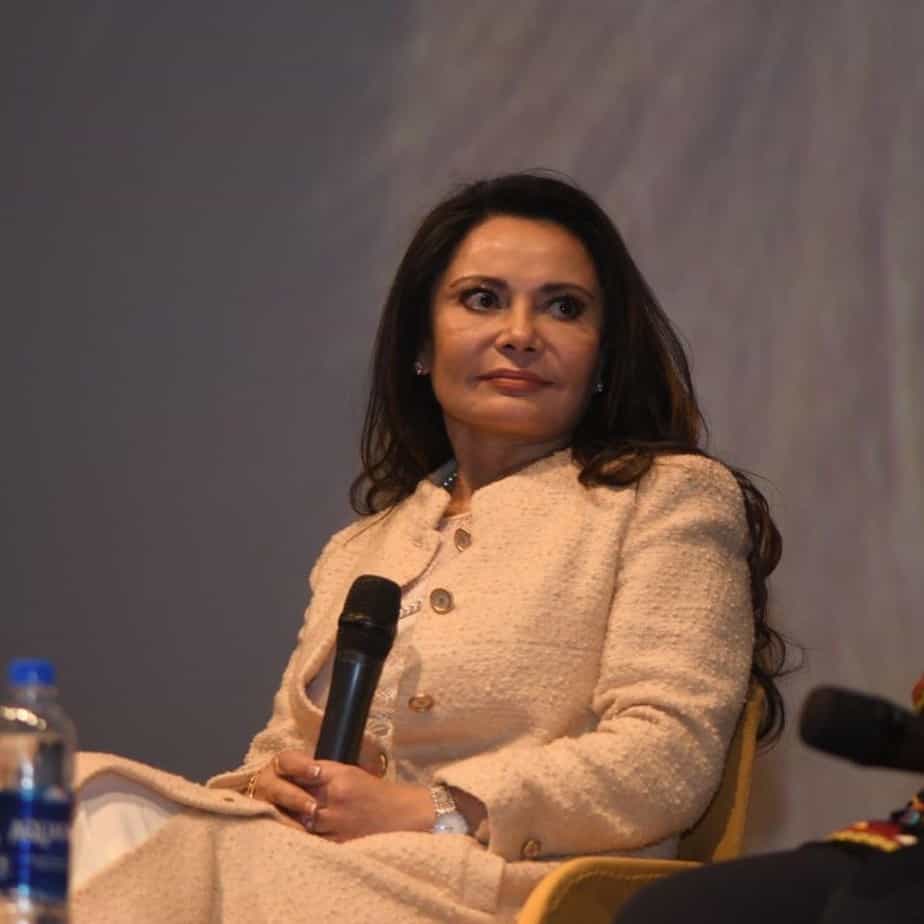Even though we’re living in the 21st century, it is still considered a big deal when women hold leadership positions. Whether in business or politics, there is still a disparity between the number of men and women holding senior positions in Pakistan and around the world. This disparity is why it’s important to address this issue head on. This week, AdAsia organised the Women Power Panel at their annual conference in Lahore. Panelists, including Dr. Zeelaf Munir, CEO of EBM, Seema Jaffer, CEO of Bond Advertising and Frieha Altaf, CEO of Catwalk Productions, discussed the many issues women face in the corporate arena and why it is important to create an enabling environment that can help them grow. Here are some of the great lessons we learnt from her inspiring journey:

1. The Road to Success Isn’t Easy
As with everything else in life, the road towards becoming a successful leader in a highly competitive industry is not easy – especially if you’re a woman. The era Dr. Zeelaf grew up in along with the environmental pressures she faced, made the road all the more challenging. Dr. Zeelaf Munir talked about how she faced obstacles at every step of her career. She pursued a medical degree while simultaneously caring for her three children after which she moved to the US and, with the support of her husband, was able to pursue her career. Upon moving back to Pakistan, she faced the challenge of bringing a new perspective into a society that was unwilling to change.
2. Change Won’t Happen Overnight
Let’s face it, there are many things that we want to change. But it is important to understand that it won’t happen overnight. Change is a slow and gradual process and therefore, requires a lot of patience. That’s exactly what Dr. Zeelaf did with EBM. Their motto, “preserving legacy and leading change,” isn’t something they just rushed into; they took the time to gradually evolve and become the inclusive workspace that they are known for today. This mindset doesn’t just apply to one’s professional life though; when striving for change, it is important to be patient in all aspects of your life.

3. The Biases One Has to Work Against
Gender bias is not uncommon, especially when it comes to the workplace. There are certain expectations that women are forced to abide by, yet men aren’t. Unfortunately, this is a phenomenon that exists across the world. Fighting against these prejudices is something all women looking to enter the workforce need to be prepared for. Dr. Zeelaf herself has been at the receiving end of such biases based on a woman’s appearance. She recounted an incident where she came to work sans makeup. The prevailing assumption, as a result of that, was that she was probably in a bad mood. This is just a small example of the many, many barriers women execs have to deal with on a daily basis, from inadequate pay to inflexible timings to even sexual harassment. Women do need to arm themselves with the right skills and personality to deal with such issues head-on, yet the responsibility of removing such bias from the workplace also falls on big-time corporations and organisations, a responsibility that EBM continues to fulfil on a regular basis.
4. The Value Women Bring to The Table
There was a general consensus amongst all panelists (and which has been proven through various studies) that having a higher majority of women in the workplace improves the company’s bottom line. These days, there is emphasis on the need for greater female presence on a company’s board. However, these requirements on diversity should not be treated as just items to tick off from one’s to-do list. It is also imperative that people understand and appreciate the value women bring to the table. Dr. Zeelaf stated that many studies have proven that women are better at men in a variety of traits that help make businesses successful. These traits include integrity, collaboration, moral compass, multitasking, mentoring and coaching. Women also possess lateral vision and the ability to foresee opportunities and threats, which helps a business – especially consumer-driven businesses – succeed.
5. Equality Is the Only Way
We can preach equality and talk about diversity in the workplace all we want, yet, at the end of the day, it all boils down to whether we are actively implementing such practices as well as how we’re raising our children. Dr. Zeelaf pointed out the significance of treating one’s sons and daughters equally by saying, “Give them the same level of freedom, the same choices, the same liberties. If we want a better tomorrow, we have to start at home.”










What do you think?
You must be logged in to post a comment.